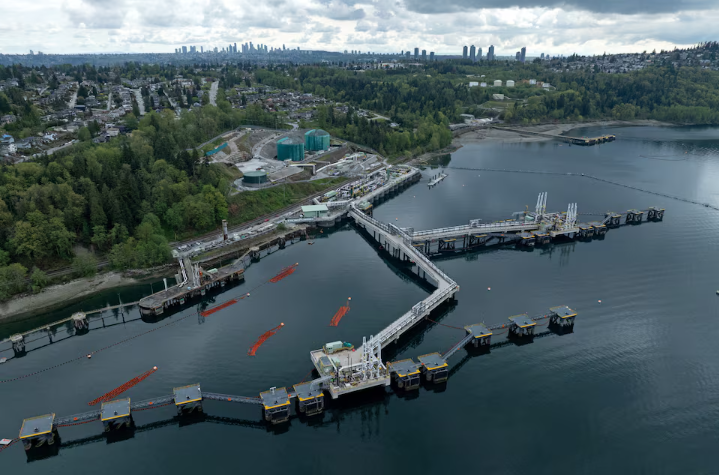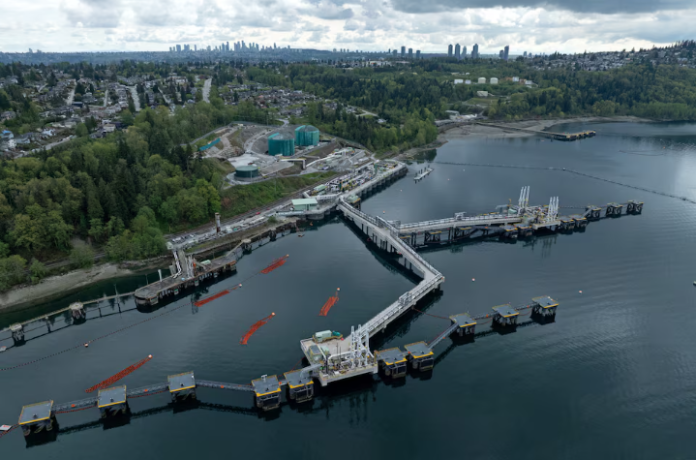Canada is facing a tough challenge when it comes to its oil exports. With 90% of its crude oil going to the U.S., recent tariff threats from former President Donald Trump have reignited debates on whether Canada should build new pipelines to diversify its export markets. However, despite political support for the idea, private companies are reluctant to take on such a massive and risky investment.
Why New Pipelines Are Being Considered
Canada is the world’s fourth-largest oil exporter, producing around 4 million barrels per day. Most of this oil is shipped to the U.S. for refining. But with Trump’s proposed tariffs, this dependence has become a major concern. Canadian politicians across party lines are now calling for new pipelines to connect the country’s oil supply to global markets via the west, east, or north coasts.
The logic is simple: by reducing reliance on the U.S., Canada could secure better trade opportunities, reduce economic vulnerability, and maintain stable oil revenues. However, the reality is far more complex.
Why No One Wants to Build Them
Despite the political push, no private company has stepped forward to invest in a new multibillion-dollar pipeline project. The reasons are clear:
- Regulatory and Environmental Hurdles: Canada’s strict environmental regulations and lengthy approval processes make large-scale infrastructure projects incredibly difficult. The Impact Assessment Act, introduced in 2019, requires pipelines to undergo extensive social, cultural, and environmental reviews, leading to delays and uncertainty.
- Past Failures: Two major east-west pipeline projects were canceled in the last decade. The Keystone XL pipeline, which was meant to transport Canadian oil to the U.S., was repeatedly approved and revoked depending on political leadership, showing how unstable pipeline investments can be.
- Financial Risks: The recent expansion of the Trans Mountain pipeline, a project taken over by the Canadian government in 2018, ballooned in cost from C$4.5 billion to a staggering C$34 billion. This has sent a clear signal to private investors that pipeline projects in Canada are financially risky.
- Indigenous and Environmental Opposition: Many Indigenous groups and environmental activists strongly oppose new pipelines, leading to protests, legal battles, and potential delays.
Canada’s Only Alternative: Trans Mountain Pipeline
For now, the only existing alternative to U.S. dependency is the Trans Mountain pipeline, which transports oil from Alberta to British Columbia’s west coast for overseas exports. The expansion project, which was completed last year, took seven years and faced significant opposition.
Even though Trans Mountain provides Canada with an export route beyond the U.S., experts argue that it is not enough to fully diversify Canada’s oil market. Additional pipelines would be needed to ensure long-term energy security.
Can Government Support Make a Difference?

Some industry experts believe that if the Canadian government provides financial backing—such as public-private partnerships or loan guarantees—private investors might reconsider pipeline projects.
Additionally, major policy changes would be necessary. Energy companies are calling for faster permitting processes, elimination of emissions caps, and clearer government support for oil infrastructure.
However, Canada’s commitment to achieving net-zero emissions by 2050 creates another challenge. If the government sticks to its climate goals, oil sands production may decline over time, making long-term pipeline investments less attractive.
What’s Next for Canada’s Oil Industry?
With Trump pushing for Keystone XL’s revival and new tariffs on the horizon, Canada’s energy sector faces a crossroads. The country must decide whether to prioritize infrastructure expansion or double down on its climate commitments.
For now, the uncertainty surrounding regulations, political cycles, and economic feasibility means that while the debate on new pipelines continues, real action remains unlikely.



